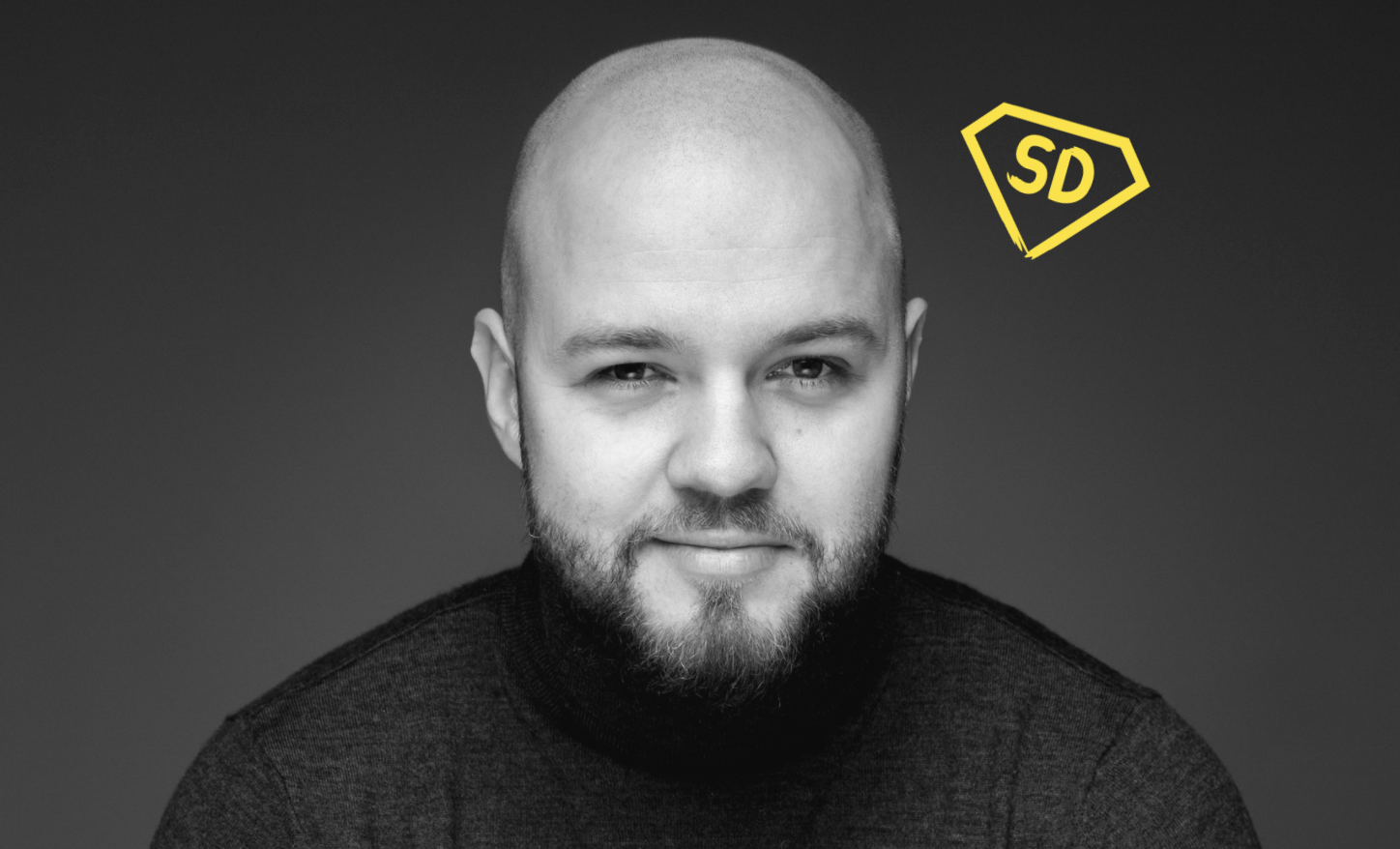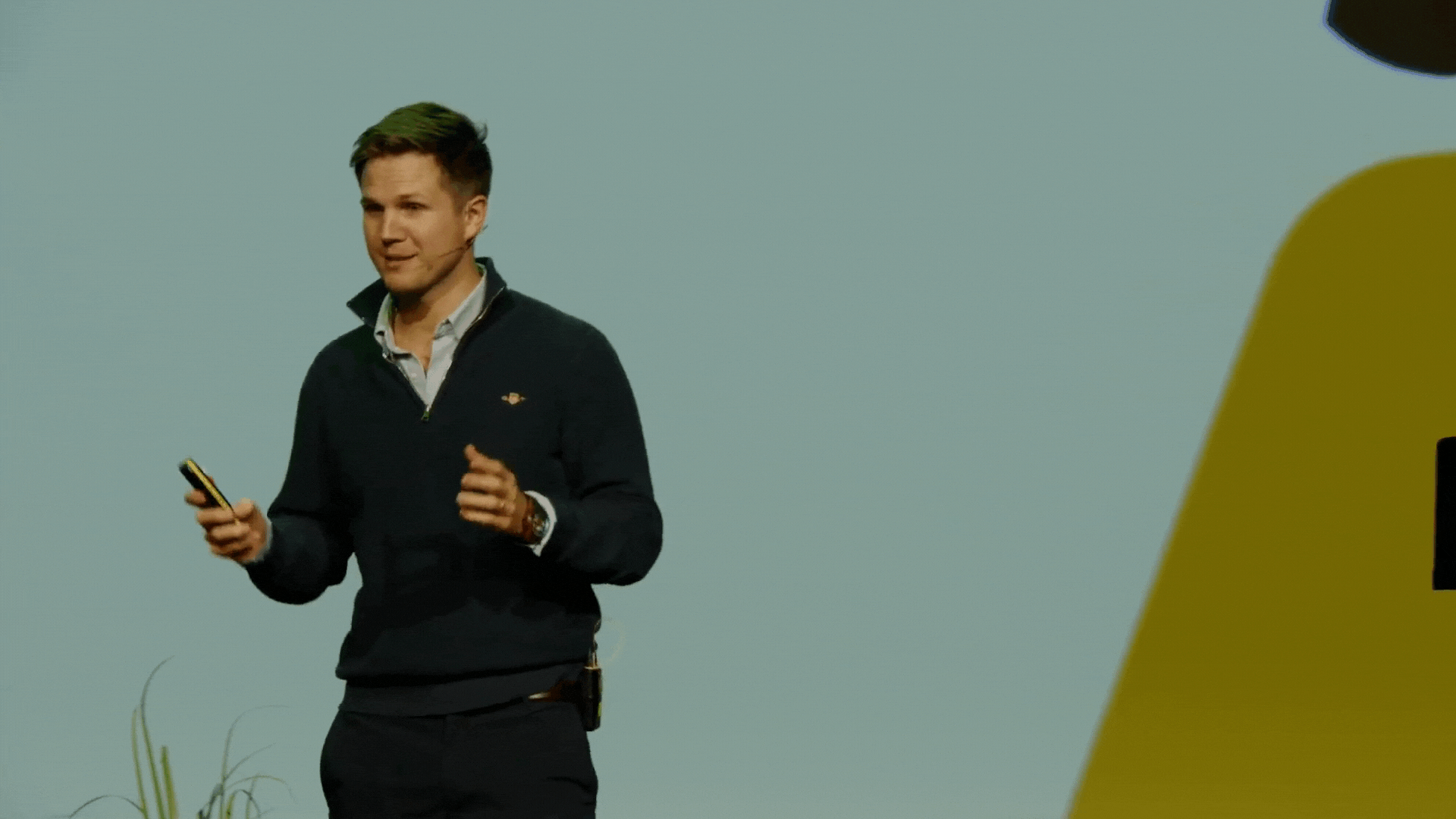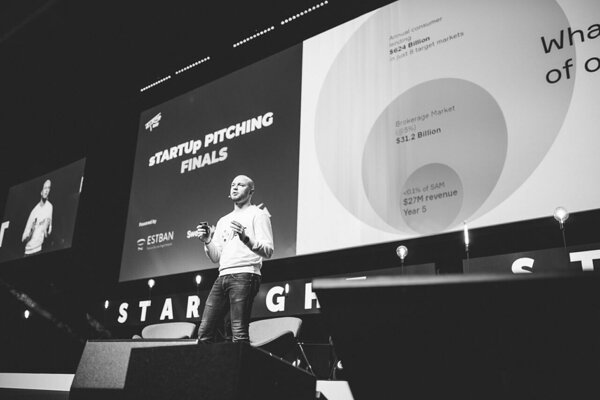
Toms Niparts: “If the problem lets you sleep peacefully, you probably should find fulfillment from another place.”
Toms Niparts is the CEO and Co-Founder of Jeff App, the winner of sTARTUp Pitching 2020. Jeff’s mission is to make financing accessible to hundreds of millions of people in Southeast Asia. In March, Jeff raised $1M to enter new Southeast Asian markets, including Indonesia and the Philippines, and introduce new products, like free credit score and insurance offers, digital discount coupons, and mobile wallet cashback.
This interview was conducted by Anette Tiitus, a member of the sTARTUp Day Marketing & PR team.
The best way to learn new things is to try to do things on your own, maybe participating in small projects or taking internships. One thing I realized over time is that your first managers have a significant impact on how your experience and career are going to turn out.
Also, there is a specific sense of responsibility. What happens if the business fails and we cannot afford to pay the team? In the end, many people have taken risks being with the company since early-stage. Nobody wants to end up in a situation when you cannot deliver the promises. However, if my team and I give 110% in terms of execution, the problems can be mitigated.
What we learned about Southeast Asian developing markets was that banks have gone through three stages of evolution. Firstly, they have been providing financial products to large corporates. If you work with a large corporation factory that has 10 000 blue-collar workers, these guys probably do not have bank accounts or do not have a credit history. That is the main problem that we were solving. You can see how much they are earning and collect the payments from the salary. That is a pretty comfortable model but hard to scale.
Secondly, the evolution has gone directly to the retail consumer in a way offline. Meaning, customers need to go to the bank's branch to do pretty much anything. To open an account or to take a product. Over the last few years, there has been a shift towards direct consumers online. Many banks have not figured it out or have not paid too much attention to online banking in Southeast Asia. With COVID-19, it has been a cattle center with limited ability to interact in person. Banks need to speed up their efforts of going digital.
In terms of Jeff, what makes me excited about the future is that we are a young company. We have been in the market for more than a year. Nevertheless, Jeff has had a successful first year. In our first quarter of 2021, in terms of volume, we did about the same in India that we did in the whole year of 2020 with better unit economics. That is still just one market in Southeast Asia. These positive advances get all our team excited. We are able not only to talk about the massive opportunity but pursue it.
Hero of the Week is a column focused on inspirational entrepreneurial people around us – their journeys, success stories and lessons learned from failures, goals, inspiration and everything in between. Get inspired and be the Hero of your own life!
How did you become an entrepreneur – was it something that happened naturally, or was it a well-deliberated decision?
In my opinion, you cannot plan to be an entrepreneur. Whether you have the business mentality or somehow you organically come to this revelation over time. In my case, probably it was the former option. If I look back at my teenage years, there were lots of signs. Different projects I took part in and activities I did were clear indications that I was going to be an entrepreneur.What are the questions to ask yourself to find out what you want to do in life?
For me, one aspect is reading, listening to podcasts, or analyzing topics of interest. These are the activities that make you think about the problems and introduce you to new ideas.But the most vital aspect is to have involvement in projects and learn new concepts by getting your hands dirty.Doing things opens many new sensations. In my experience, you will not get the needed answers and interest from purely approaching topics from an academic angle. In conclusion, my best advice is to experience contrasting activities and find the aspects that keep you up at night. If the ideas of a concrete problem let you sleep peacefully, then you probably should find fulfillment from another place.
The best way to learn new things is to try to do things on your own, maybe participating in small projects or taking internships. One thing I realized over time is that your first managers have a significant impact on how your experience and career are going to turn out.
What are the personality traits that help a person to become successful?
For me, there are two personality traits. The first one is to have a mindset of finding a solution for every obstacle. It is crucial not only to think about the solution but implement it in the process. You can have brilliant ideas, but when not executed, nothing will come out of the project. Secondly, a successful person needs to have resilience. Plans do not always go the prearranged way. It is crucial to understand that this is part of the process, but even more important is to find out why and what exactly went wrong. Eventually, adjusting accordingly and finding a path to trying again.What do you think about mentors? Do you have any?
I have mixed feelings on this topic. From one point of view, I have had a couple of mentors, but I am not the person who has had many mentors or advisors over time. Mentors can be supportive if they have had a similar path to what you are setting out. On the other side, there are probably a few people in the world who are pleased to advise you without expecting something in return. It is not a problem to jump on a few 30-minute mentoring sessions, but being able to contribute to the business is hard to find. You need to be aware of others' intentions, because some may use your inexperience in the field.What is your biggest fear as an entrepreneur? How do you cope with it?
It is a tricky question. Dissimilar challenges and situations come up practically every day. Of course, these aspects make me worry until we have come down to a solution. This question goes well together with mentors. Although I do not have a purely defined opinion about advisors, they can be beneficial in certain areas. For example, perceiving the big picture. As an entrepreneur, you can often get carried away with daily tasks. Therefore, it is challenging to take a step back and get a helicopter view of things.Also, there is a specific sense of responsibility. What happens if the business fails and we cannot afford to pay the team? In the end, many people have taken risks being with the company since early-stage. Nobody wants to end up in a situation when you cannot deliver the promises. However, if my team and I give 110% in terms of execution, the problems can be mitigated.
The team of Jeff App (Source)
The road to success is usually with ups and downs. During your road to success, were there moments where you thought that you were going to fail and this whole thing will not take off?
It is about understanding that emotional thought of the moment is not necessarily true. It is a crucial skill to be able to take a moment and think about the concerning topic a few hours later or the next day. This method helps to clear your mind and see the topic from a new perspective. Understanding that these emotions can be helpful and at the same time harmful. As an entrepreneur, you should not doubt yourself and let the emotions fill you up. In the long run, it will not end well.If you had one superpower as an entrepreneur, what would it be and why?
That would be closing any sales deal within 24 hours. I do not think that I need to explain why. At sTARTUp Day last year, I did not see any keynotes. Afterward, I looked at a couple of YouTube videos, and there was Lauri Kinkar, CEO of Messente. He said: "Revenue is the sweetest form of cash there is because if you get the investment, that means that investors are buying something you might build tomorrow. Revenue means that people are buying what you have already built today." If I had the superpower of getting more revenue in 24 hours, that would be pretty amazing.Author: Rasaa Etten
What was your daily routine during quarantine? Did you build any new habits?
Some of my teammates and I stuck to going to the office. It played out nicely for us. Many companies, for obvious reasons, were facing challenges and had trouble adjusting to the new order. We in Jeff kept working ever harder. That was the old routine that we sustained. Philosophically, during the pandemic, you start to understand that you could live without many unnecessary luxuries.Why is now the time for Jeff to exist?
The challenges we saw in Southeast Asia, have been solved organically in other parts of the world, in probably more developed economies. We will do our best guesstimation to delay the lag between two regions, Europe and Southeast Asia.What we learned about Southeast Asian developing markets was that banks have gone through three stages of evolution. Firstly, they have been providing financial products to large corporates. If you work with a large corporation factory that has 10 000 blue-collar workers, these guys probably do not have bank accounts or do not have a credit history. That is the main problem that we were solving. You can see how much they are earning and collect the payments from the salary. That is a pretty comfortable model but hard to scale.
Secondly, the evolution has gone directly to the retail consumer in a way offline. Meaning, customers need to go to the bank's branch to do pretty much anything. To open an account or to take a product. Over the last few years, there has been a shift towards direct consumers online. Many banks have not figured it out or have not paid too much attention to online banking in Southeast Asia. With COVID-19, it has been a cattle center with limited ability to interact in person. Banks need to speed up their efforts of going digital.
How did you learn about the situation in Asia?
The answer goes well together with the second question. I was working at a big corporation of FinTech. I got the opportunity to get a glimpse of the Asian market. After that, I did not limit myself from digging deeper, being curious, and reaching out to people about the situation. When I had amassed enough knowledge, I saw an opportunity to create Jeff.What makes you excited about the future?
In terms of the COVID-19 pandemic, you start to value divergent aspects of life. Some activities are better as they were in the good old times: going to the restaurant or a bar with friends, celebrating special occasions. These aspects make me excited in general. I hope that we can enjoy such activities soon.In terms of Jeff, what makes me excited about the future is that we are a young company. We have been in the market for more than a year. Nevertheless, Jeff has had a successful first year. In our first quarter of 2021, in terms of volume, we did about the same in India that we did in the whole year of 2020 with better unit economics. That is still just one market in Southeast Asia. These positive advances get all our team excited. We are able not only to talk about the massive opportunity but pursue it.
Hero of the Week is a column focused on inspirational entrepreneurial people around us – their journeys, success stories and lessons learned from failures, goals, inspiration and everything in between. Get inspired and be the Hero of your own life!
Articles you might also like:

Combining Wise Lessons and Lightyear Ambitions: Martin Sokk’s Mission to Make Investing Simple for Everyone
11.12.2024
Martin Sokk, co-founder and CEO of Lightyear, has a career trajectory that mirrors the transformation of the financial world itself. From his...

From Farmer's Son to CEO: How Robin Saluoks Is Revolutionizing Agriculture with eAgronom
07.10.2024
Robin Saluoks, CEO and co-founder of eAgronom, shares his journey from growing up in a farming family to leading one of the...

